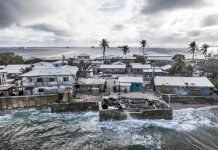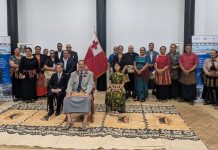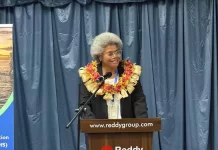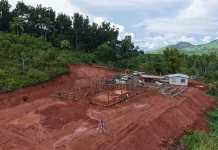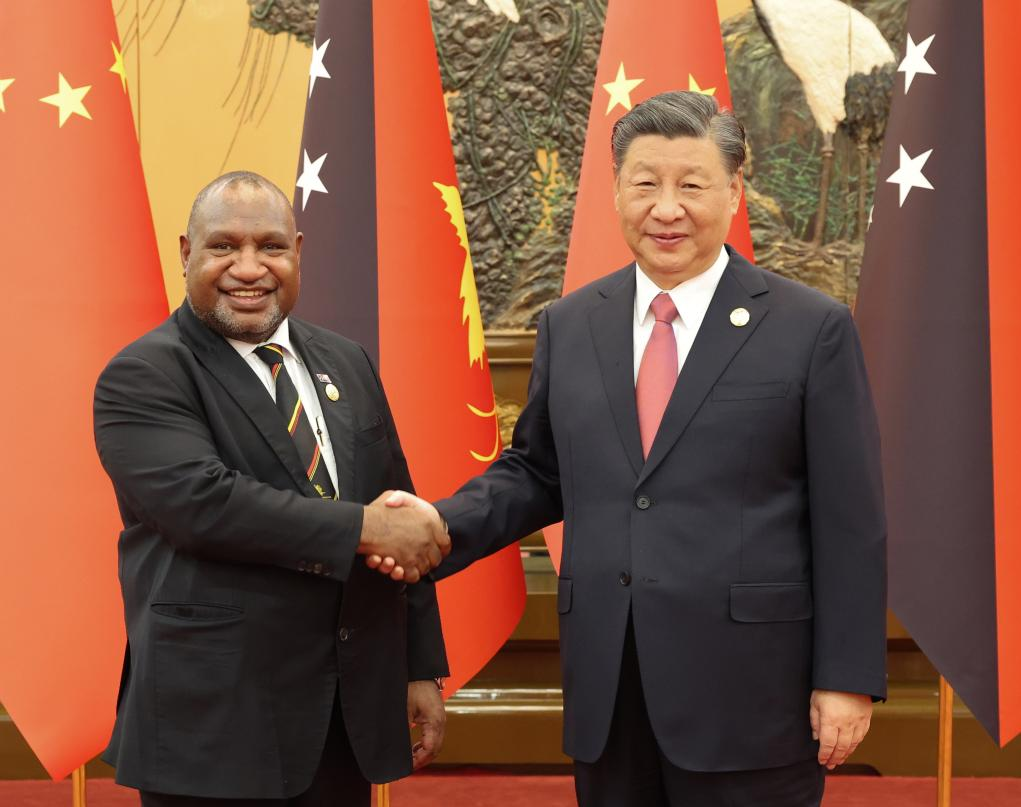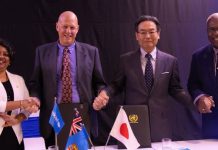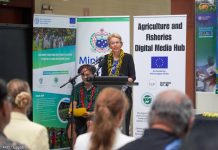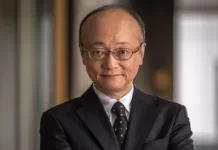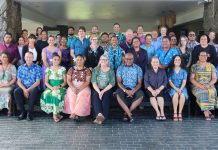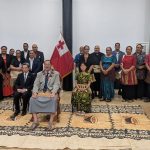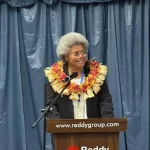The People’s Republic of China and Papua New Guinea on Tuesday issued a joint statement.
At the invitation of the People’s Republic of China, Prime Minister James Marape, of Papua New Guinea attended the Third Belt and Road Forum for International Cooperation, and also embarked on an official visit to the People’s Republic of China from 16-19 October, 2023.
During the visit, President Xi Jinping met with Prime Minister Marape, and Premier Li Qiang held talks with Prime Minister Marape. Leaders during these meetings had in-depth exchanges of views on bilateral relations, Belt and Road cooperation and issues of mutual interest, and reached important and broad consensus.
1. The two sides spoke highly of the great progress in bilateral relations since the establishment of diplomatic ties 47 years ago, and believe that they enjoy deeper political mutual trust, flourishing mutually beneficial cooperation, stronger friendship between the two peoples, and sound communication and coordination on multilateral occasions. The Comprehensive Strategic Partnership Featuring Mutual Respect and Common Development has been further enriched.
2. Papua New Guinea appreciates China’s great achievements over the past 10 years of the new era, and believes that the Chinese path to modernization offers developing countries alternate options in independently pursuing modernisation, and that China will realise the second centenary goal of building a great modern socialist country in all respects, and advance the rejuvenation of the Chinese nation on all fronts through a Chinese path to modernization.
3. The two sides reiterated their respect for each other’s independence, sovereignty and territorial integrity, their support for the two peoples’ independent choice of development path pursuant to respective national conditions, and their staunch support for each other on issues concerning each other’s core interests and major concerns. Papua New Guinea reaffirms its longstanding traditional commitment to the One-China policy, and that the government of the People’s Republic of China is the sole legal government representing the whole of China and Taiwan is an inalienable part of China’s territory, that it opposes “Taiwan independence,” and that it supports all efforts made by the Government of the People’s Republic of China to realise reunification. Papua New Guinea considers matters related to Hong Kong, Xinjiang, and Xizang as China’s internal affairs and within its “friends to all, enemies to none” foreign policy reaffirms the principle of non-interference into another sovereign state’s internal affairs. China reiterates its staunch support for Papua New Guinea in independently choosing a development pathway and in upholding its sovereignty, security and development interests.
4. Papua New Guinea recognises the huge potential of the Chinese economy and market, and is desirous to harness these opportunities in its endeavor to industrialise through creation of Special Economic Zones and downstream processing and value-add of its vast renewable and nonrenewable resources. China supports Papua New Guinea’s efforts toward that end.
5. Papua New Guinea recognises the important contribution of the Belt and Road Initiative (BRI) in promoting win-win cooperation and global economic growth since it was proposed 10 years ago, and congratulated China on successfully holding the Third Belt and Road Forum for International Cooperation. Papua New Guinea will continue to actively participate in Belt and Road cooperation now and heading into the future.
6. Papua New Guinea welcomes and supports the Global Development Initiative, the Global Security Initiative and the Global Civilisation Initiative proposed by President Xi Jinping, and stands ready to work with China in building a community with a shared future for mankind. China acknowledges Papua New Guinea’s involvement at the UN, APEC, and other multilateral, international and regional organisations.
7. The two countries agree that all countries, regardless of size, strength and wealth, are equal. It is important to uphold true multilateralism, defend the international system with the UN at its core, the international order based on international law, and the basic norms governing international relations based on the purposes and principles of the UN Charter, advocate humanity’s common values of peace, development, fairness, justice, democracy and freedom, safeguard the common interests of developing countries, firmly stand against any acts of putting together “”small circles,” dividing countries into camps, and stirring up division and confrontation.
8. The two countries recognise the need to enhance internal consultation, build synergy, strengthen development momentum, and increase their comprehensive strategic partnership to higher levels.
– Enhance exchanges at all levels and in multiple areas, increase interactions to better share governance experience and deepen mutual trust.
– Further synergise development strategies. Expand practical cooperation in a wide range of areas including trade and investment, banking and finance, agriculture, forestry, fisheries, infrastructure, energy and minerals, green development, marine resource management, conservation and research. Both countries agree to further accelerate the China-PNG Free Trade Agreement process, and work together to complete Joint Feasibility Study with the aim to commence negotiation within one year. The two sides agree to open direct flight between Guangzhou and Port Moresby at an early date.
– Enhance people-to-people exchanges to forge closer bonds between the peoples. Expand exchanges and cooperation in areas such as education, culture, youth, health, sports, tourism and media. China will continue to provide various kinds of scholarships and training opportunities and send medical teams and Chinese language teachers to Papua New Guinea.
– Remain committed to a closer community with a shared future between China and Pacific Island Countries. Actively support the implementation of the 2050 Strategy for the Blue Pacific Continent. Work together in building multilateral cooperation frameworks on emergency supplies, climate response, poverty alleviation, Juncao technology, agriculture, etc., to take the cooperation between China and Pacific Island Countries as a whole to a new level.
– Strengthen communication and coordination on international and regional affairs. Work together for the full and effective implementation of the United Nations Framework Convention on Climate Change and its Paris Agreement. Support and actively participate in cooperation under the Global Development Initiative and promote the implementation of the UN 2030 Agenda for Sustainable Development.
During the visit, the two sides reached various cooperation results in the fields of development cooperation, infrastructure development, climate response, education, and energy.
SOURCE: XINHUA/PACNEWS


